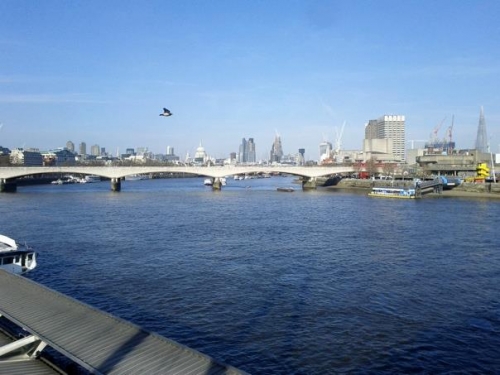Islamic Relief gets 'de-risked'
Amisha Mehta, Editor, London, 5 January 2016

HSBC has reportedly withdrawn its banking services from Britain's largest government-funded Muslim charity, Islamic Relief, because it fears the money may be used to fund terrorist groups.
Islamic Relief, which was founded in 1984, responds to disasters and emergencies and works with local communities to promote economic and social development. It received around £4 million from the UK's Department for International Development from 2012-14. The department said that funding was subject to “rigorous checks”.
The British banking giant may have ended the banking relationship because of Islamic Relief's work in the Middle East, including projects in Gaza and Syria, according to a report by The Sunday Times.
In 2014, the Israeli government accused the charity of laundering money for Hamas and banned it from the West Bank. Islamic Relief categorically denied the claim. In November that year, the United Arab Emirates put the charity on a 'terror' watch list. An audit by the United Kingdom's Charity Commission then cleared Islamic Relief of the 'terror funding' allegations.
An HSBC spokesperson said: “Whenever we review a customer relationship we gather information from a wide range of sources and take a number of factors into consideration. For a business customer these factors would typically include the type of activities the business is involved in, the jurisdictions in which it operates and the products and services it uses.”
“Although we can't always be specific about why we decide to close an account, a decision of this kind is never taken lightly and is never due to the customer's race or religion. We will continue to work with the UK Government and industry bodies to support the not-for-profit sector and to help charity customers manage risk in their operations.”
On its website the charity expressed surprise at HSBC's withdrawal but said that some of its other 'financial partners' were helping to ensure that help will still go to the countries in which it operates. This is a classic case of a bank ‘de-risking,’ in other words withdrawing its services from someone for fear of what the Government, sanctioning regulators and/or public opinion will think of it. Some fear that charities will be forced to transfer funds in ways that are less easy for governments to see than are bank transfers.
Imran Madden, Islamic Relief’s director in the UK, said: “We were in discussions with HSBC during 2014 through which we learned that the bank felt it would be difficult to continue its banking relationship with us due to the nature of our work. At this point they invited us to end the relationship – which they did themselves at the end of the year when we declined."
The charity said that HSBC thought that it needed to “manage the challenge” posed by customers operating in “high-risk jurisdictions” as a result of its gigantic $1.9 billion deferred prosecution agreement it had to sign in America in 2012 for the help it gave to money-launderers and pariah states. The UK's financial regulators said that they were going to add their own penalties to those of the Americans, but they never did.
This might deal a further blow to philanthropic HNW individuals and their private bankers in their desire to distribute monies to the British charity sector, which is notorious for its corruption. It might also harm the reputation of Islamic charities as regards 'know your customer' background checks and transaction monitoring, jobs at which the Islamic financial sector as a whole is famous for doing badly.












